Know If You Suffer from Depression – Causes, Signs&Symptoms, Treatments
Depression is a mental illness characterized by intense feelings of sadness. You may also feel helpless, hopeless, and worthless. Not only does it affect you, but depression will also change your relationships with family and relatives.
Depression has a medical term that is “depressive disorder,” or “clinical depression.” This depression is a real illness and is not a sign of a person’s weakness or character defects. You must remember that depression can be treated and many people feel better after undergoing treatment.
In order to know if you suffer from depression, let’s have a look at the review about depression below.
Definition
What is depression?
Depression is a condition called severe depression or clinical depression. Depression can also be described as a mood disorder that causes feelings of sadness and loss of persistent interest.
What does depression do to you? It can affect your feelings, ways of thinking, and behaving, and can make you have various emotional and physical problems. If the sadness lasts for a few days or weeks, interferes with work or other activities with family or friends, or is suicidal, this is likely depression.
Discuss with your doctor if you feel you have symptoms of depression.
=======> Brain boost buy 2 get 1 free <========
How common is depression?
Depression is a condition that often occurs in society. According to research, depression occurs in 80% of people at some time in their lives and can occur at any age. There are more than 264 million people suffer from depression in the world.
Depression is more common in women than men.
What causes depression?
There is no exact cause of depression. This is usually the result of a combination of various factors, they are:
- Genetic. People with a family history of depression are more likely to be depressed than those who have no family history of depression.
- Brain chemistry. People with depression have a different brain chemical than those who are not depressed.
- Stress. Losing a loved one, a troubled relationship, or a situation that can create stress, can lead to depression.
Who is at risk for depression?
Several factors in your life can increase your risk of depression. You may have a higher risk of depression if you experience:
- Difficult life phases, for example experiencing unemployment, divorce, poverty, although this event can last a long time, severe depression usually only occurs in people who do have a tendency for the disorder.
- Personality. You may find it difficult to cope with stress in life, or difficult to adapt to new situations.
- Genetic factors. People who have siblings with depression put themselves at a higher risk.
- Your history. Childhood trauma can change the way you respond to fear and stress. Other events in life such as suicide attempts, or any form of harassment – sexual, physical or substance.
- Some prescription drugs can cause depression, including corticosteroids, some beta-blockers, interferon, and reserpine.
- Overuse of alcohol and amphetamine can trigger depression.
- Past head injuries.
- People with a history of severe depression can experience a relapse.
Signs & Symptoms
What are the signs and symptoms of depression?
Depression is a condition that can cause a variety of symptoms in everyone. For example, when suffering from depression some people will sleep more, while other symptoms can cause symptoms of insomnia and no appetite.
Even so, some common symptoms of depression are:
- Feeling depressed mood all day, especially in the morning
- You feel tired and lack of energy, almost every day
- You feel worthless and guilty almost every day
- You have difficulty concentrating, remembering details, and making decisions
- You cannot sleep or sleep too long almost every day
- You have no interest in fun activities
- You often think about death or suicide
- You feel lack of rest
- You may experience underweight or overweight.
For people who experience depression, these symptoms last for up to 2 weeks or more. There may be signs and symptoms not mentioned above. If you have a concern about a particular symptom, consult your doctor.
Quoted from Web MD, some other symptoms of depression are:
- Feeling annoyed and restless
- Reducing pleasure in life
- Overeat or stop feeling hungry
- Have pain, headaches, cramps, or digestive problems that don’t go away or get better with treatment
- Feeling sad, anxious, or empty.
Not all people who experience depression experience the same symptoms as other people. This depends on how severe, how often, and how long they experience depression.
In addition, physical symptoms exhibited by people who experience depression are muscle pain, back pain, digestive problems, sleep problems, and changes in appetite.
You may also experience slowing down of speech and movement. The reason is that chemicals in the brain associated with depression, specifically serotonin and norepinephrine, play a role in mood and pain.
When should I see a doctor?
If you feel some signs of depression, make an appointment with your doctor as soon as you can. If you are reluctant to do therapy, talk with your friends or spouse, health servants, religious leaders, or other people you can trust.
No need to be ashamed to ask for help from doctors or other parties. The earlier you go to the doctor, the better.
If you think you will injure yourself or attempt to commit suicide, call an emergency number immediately.
In addition, consider the following options when you think of suicide:
- Ask your doctor or other health care provider for help.
- Talk with your closest friends or spouse.
- Contact religious leaders or others in your faith community.
If your spouse or friend is in danger of attempted suicide:
- Make sure other people stay with him
- Call your local emergency number as soon as possible
- Or, if possible, take the person to an emergency department at the nearest hospital.
Types
What are the types of depression?
Symptoms caused by major depression can vary from person to person. You can experience depression in certain forms. Quoted from the Mayo Clinic, here are the types of depression in a more specific form:
- Anxiety disorders, which are depression with anxiety or unusual worries about possible events.
- Mixed forms, namely simultaneous depression and mania, which include increased self-esteem, too much talking, and increased energy.
- The form of melancholy, which is severe depression with a lack of interest in things that are fun. In addition, you also experience bad moods in the morning, large changes in appetite, to feelings of guilt.
- The atypical form, when you can feel happy in responding to pleasant things, but only temporarily.
- Psychotic forms, namely depression accompanied by delusions or hallucinations, which may involve negative thoughts about oneself.
- Catatonia, which is depression which includes motor activity that involves involuntary uncontrolled movements.
- Peripartum onset, which is depression that occurs during pregnancy or within a few weeks to several months after delivery.
- Seasonal patterns, namely depression associated with seasonal changes and reduced sun exposure.
Some other mental disorders have symptoms such as depression, such as bipolar disorder, cyclotymic disorder, disruptive mood dysregulation disorder, persistent depressive disorder, and premenstrual dysphoric disorders.
Risk factors
What increases my risk for depression?
Depression is more common in adolescents, around their 20s or 30s, but depression can still occur at any age. Women are diagnosed with depression more often than men, but this may also be because usually women sufferers seek help and treatment more often.
Factors that increase the risk of suffering from depression or triggering depression are:
- Have a family history of mental health disorders, such as anxiety disorders, eating disorders, or post-traumatic stress disorder (PTSD)
- Alcohol or drug abuse
- Some personality traits, such as low self-esteem, dependence, self-critical or pessimistic
- Chronic or serious illness, such as cancer, stroke, chronic pain, or heart disease
- Take certain medications such as some high blood pressure medications or sleeping pills (discuss with your doctor before stopping the medication)
- Traumatic events or which can create stress, such as sexual violence, death, or the loss of a loved one or financial problems
- Having blood relations with people with depression, bipolar disorder, alcoholism, or attempted suicide
Treatment
The information provided is not a substitute for medical advice. ALWAYS consult your doctor.
What are my treatment options for depression?
Depression therapy usually uses drugs, psychotherapy, and electroconvulsive therapy. Your doctor will review your condition and will consider what therapy is right for you.
Don’t be ashamed to discuss your concerns about the therapies that the doctor offers. Treatment options for dealing with depression are:
1. Drugs
The drugs used are antidepressants. Some drugs that are often used are escitalopram, paroxetine, sertraline, fluoxetine, and citaloppram. These drugs include selective serotonin reuptake inhibitors (SSRIs).
In addition, there are also drugs venlafaxine, duloxetine, and bupropion. This drug can cause several side effects, such as:
- Weight gain
- Sexual problems
- Nausea
Antidepressants do not cause addiction. When you no longer need antidepressants and stop using antidepressants, your body will not experience dependence.
However, the use and stopping of antidepressants must be under the supervision of a doctor. A sudden termination can cause worsening symptoms of depression. Always consult a doctor about using antidepressants.
Also read: BEST FOODS TO FIGHT DEPRESSION – 12 Must Have Ones
2. Psychotherapy
This therapy can also help treat depression. Psychotherapy is done by teaching new ways of thinking and behaving and changing habits that play a role in depression.
This therapy can help you understand and get through relationships that are full of problems or situations that cause depression or even worsen it.
3. Electroconvulsive therapy
For severe depression that is difficult to treat or does not respond to drugs or psychotherapy, electroconvulsive therapy (ECT) is sometimes performed under the influence of anesthetics.
Even though ECT used to have a bad reputation, now ECT has improved and can cure people when other therapies don’t work.
ECT can cause side effects such as confusion and memory loss. Although these side effects are only temporary, sometimes these effects can also continue to stick.
What are the usual tests for depression?
In general, your doctor will diagnose your symptoms and your medical history. In addition, there are tests conducted by doctors in order to determine the condition of your depression, they are:
- Physical examination. Your doctor may do a physical exam and ask questions about your health. In some cases, depression may be related to certain physical health.
- Laboratory test. For example, your doctor will do a complete blood test or test your thyroid to make sure it is functioning properly.
- Psychiatric evaluation. A mental health specialist will ask about your symptoms, thoughts, feelings, and behavior patterns. You may be asked to fill out a questionnaire to help answer these questions.
- DSM-5. Medical personnel can use the criteria to determine depression listed in the Diagnostic and Statistical Manual of Mental Disorders (DSM-5), published by the American Psychiatric Association.
- PPDGJ. Workers use these criteria, which are also called PPDGJ (Practical Guidelines for Diagnosis of Mental Disorders).
Treatment at home
What are some lifestyle changes or home remedies that can be done to treat depression?
Here are lifestyle and home remedies that can help you deal with depression:
- Don’t be alone
- Make your life simpler
- Regular exercise
- Eat healthy foods
- Learn to relax and handle your stress.
- Don’t make decisions when you are down.
- Contact your doctor if your symptoms get worse
- Contact your doctor if you experience side effects of the drug
- Contact your doctor immediately if you think of committing suicide or killing or hurting others.
- Contact your doctor right away if you feel psychotic symptoms, such as hearing a sound, seeing something that isn’t really there, or feeling excessive fear.
Also read: How To Help Your Loved One With Depression?
Bonus tips:
Learn the many benefits of spirulina, which may also help to manage mild depression by checking the Frequently Asked Question page at whyspirulina.
There you go. That was the explanation about depression. Hope this article is useful to you in order to know if you suffer from depression.
If you have questions, consult your doctor for the best solution to your problem.
Stay safe, happy, and healthy!
—————————————————————————————————————————————–
This post may contain affiliate links, which means I make a small commission off purchases, at no extra cost to you. Read my full disclosure here. Thank you for supporting the work I put on this site!
=======> Click Here for Brain boost, Buy 2 Get 1 FREE <========
—————————————————————————————————————————————–
We Stress Free does not provide medical advice, diagnosis, or treatment. However, if you need someone to talk to and want to make friends, please feel free to reach me at ferra@westressfree.com. If you would like to REDUCE your STRESS and are interested to do an ONLINE THERAPY, you can do so here.
—————————————————————————————————————————————-
The information contained in this article is for educational and informational purposes only and is not intended as health or medical advice. Always consult a physician or other qualified health provider regarding any questions you may have about a medical condition or health objectives.
Thank you for reading today’s topic: Know if You Suffer from Depression

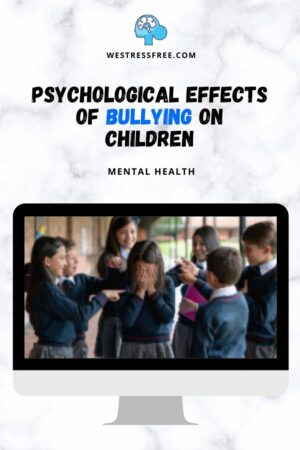
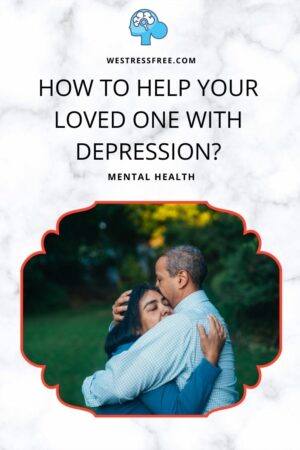
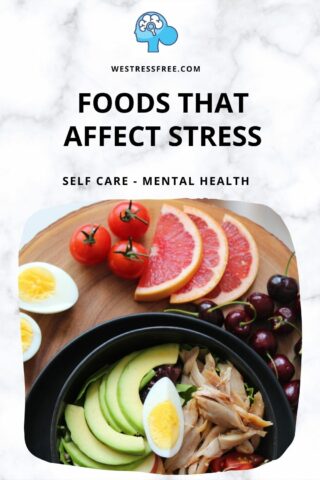
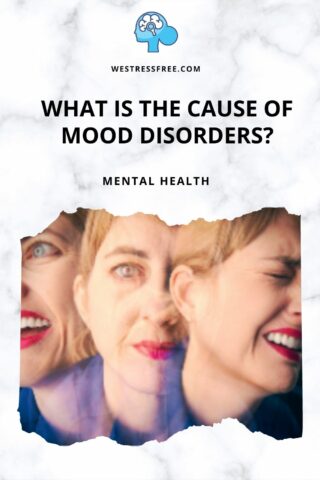
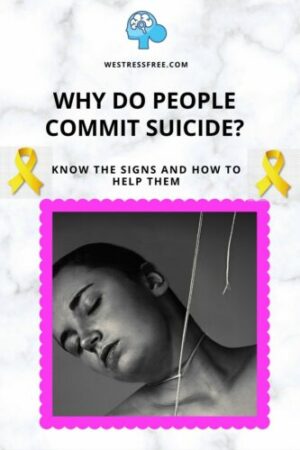


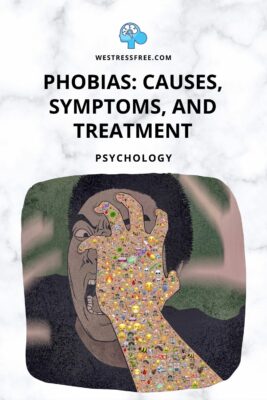

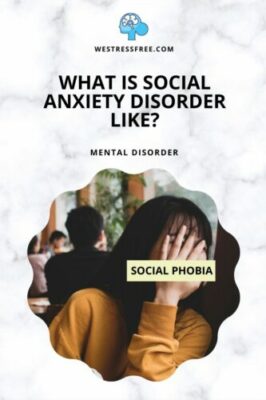

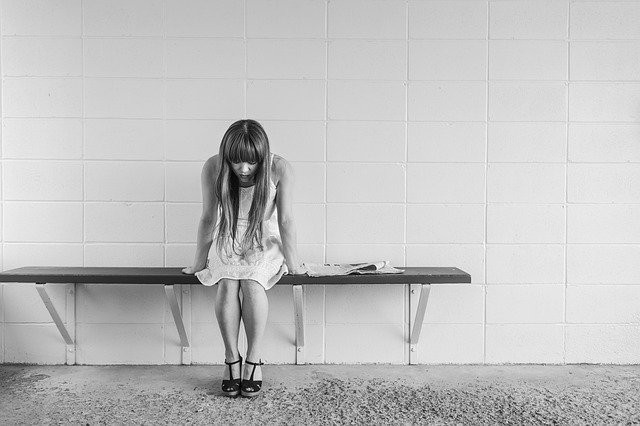
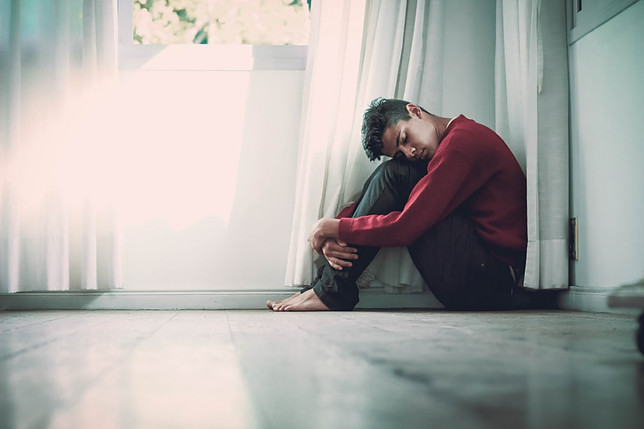
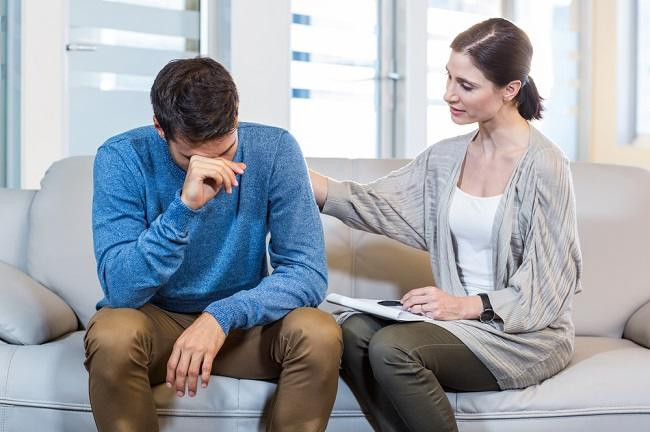






I must thank you for creating a website like this and writing this article.
i just discovered that the physical symptoms exhibited by people who experience depression are muscle pain, back pain, digestive problems, sleep problems, and changes in appetite. but sometimes these may mean other things. careful observation will be better
Hello Kirkman,
Thank you for taking time to visit my site, read my post and leave a comment. I really appreciate your kind words in your comment!
Glad you found this article useful. Just like other mental health disorders, depression can also affect us not only mentally but also physically.
Thanks again for your comment. Stay safe,happy and healthy!
Ferra
Hey,
Thank you for the in depth article. Do you think meditation will also to overcome depression?
Hi Rajith,
Yes, meditation can help with overcoming depression. Deep breathing exercise is another one that can help reducing stress, anxiety, and depression. I wrote about deep breathing exercise, maybe you can check it out.
https://westressfree.com/stress-management-with-breathing-exercise/
Thank you for visiting my site, reading the post and leaving a comment. Glad you found this article helpful.
Stay safe, happy and healthy!
Ferra
Getting the right education towards depression would help us all to take the right and most informed decisions about depression. To be honest, this is a good thing to see here and to know too. I really like this post because of the details you have shared here. Often, some people have depression and would not realise it. Thanks so much for this
Hello Ella,
Thank you for taking time to visit my site, read my post and leave a comment. I really appreciate your kind words in your comment!
Glad you found this article useful.
True. Getting a better understanding on what depression really is can help someone with their condition so they can seek for help from professionals like doctors, psychiatrist or psychologist and tell them what exactly they’re experiencing and feeling. Then the doctors will be able to direct them to the right treatments based on their unique case.
Thanks again for your comment. Stay safe, happy and healthy!
Ferra
Hi Ferra. Great, informative post. I think this is a good time for this post with what is going on in the world. A lot of people may have lost their jobs or feel trapped. This kind of information can help them realize that there is help for them and that there are other people who are going through the same thing and they are not alone. Thanks for sharing this information about this topic.
Hi Justin,
Thank you for taking time to visit my site, read my post and leave a comment. I really appreciate your kind words in your comment!
Glad you found this article useful. I do hope this is helpful for others too.
Stay safe,happy and healthy!
Ferra
Wow, you dealt with this issue just like a professional at it and really, I like how you’re able to give the information that I need to know about depression because I feel like it is a serious issue. I have always had depression before but I have never been able to define it personally. I hope that you have a post that also talks about how to deal with it fully.
Hi Suz,
Thank you for stopping by my website, reading the post, and leaving a kind comment.
I appreciate you for sharing your thoughts and support.
Glad to hear that you found this post useful.
Stay safe, happy, and healthy!
Ferra
Depression is actually one of the very many illnesses that is fast becoming normal these days with the alarming Raye of people that are getting to it. It is actually causing a staggering rate of deaths too. So, having a post like this that explains in details what it is all about and how t really stay out of it and ensure we keep safe is great. Thanks here
Hi Nath,
Thank you for stopping by my website, reading the post, and leaving a kind comment.
I appreciate you for sharing your thoughts and support.
Glad to hear that you found this post useful.
Stay safe, happy, and healthy!
Ferra
Hello there, many of us suffer from depression and it’s not good at all because it could go on to affecting the mental health of that individual. This article has made things much clearer to me because I have come to understand that one doesn’t need to break down to see if you are depressed. Great content
Hi Justin,
Thank you for stopping by my website, reading the post, and leaving a kind comment.
I appreciate you for sharing your thoughts and support.
Glad to hear that you found this post useful.
Stay safe, happy, and healthy!
Ferra